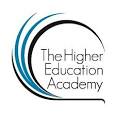 Date: 6 Sep 2013
Date: 6 Sep 2013
Start Time: 10:00 am
Location/venue: Fielder Centre, University of Hertfordshire, UK
This free one-day discussion meeting will explore challenges facing the sector in relation to assuring quality whilst also enabling quality enhancement and innovation through technology enhanced learning (TEL). We will be considering the rapid increase in the development of MOOCs (Massive Online open courses) and the impact of the Key Information Set (KIS) requirements on UK Higher Education Institutions.
Technologies impact on all aspects of the learning process, including teaching, assessment and communication. In light of changes in technologies and the changing role of e-learning within higher education, guidance and policies associated with quality assurance and quality enhancement of technology enhanced learning (TEL) need to be considered and reviewed.
The day will include; a discussion on the quality issues associated with MOOCs and feedback from a MOOC student; Michael Hamlyn, Director of Academic Enhancement at Staffordshire University. The afternoon will focus on the KIS requirements and will include presentations from Catherine Benfield, Head of Business Development at the Higher Education Statistics Agency (HESA), and Moira Sutton from the International Centre for Guidance Studies (iCeGS), School of Education at the University of Derby. Catherine and Moira have been involved in the early evaluations of the KIS and will present findings from their respective reports regarding Institutional and User perspectives. The presentations will be followed by discussions about the KIS requirements which focus on face to face contact hours with little consideration of how institutions and academics use technology to guide and support students. The issues were recently highlighted by the JISC following the publication of a Student Academic Experience survey from Which? And the Higher Education Policy Institute (HEPI). Actively seeking your contributions to the QAQE debate, the day will include networking opportunities and participatory sessions to explore practitioner needs.
Attendance at the conference is free - there is no registration fee
Programme:
10.00-10.15 Registration and Coffee
10.15-10.20 Welcome
10.20-11.30 MOOCs and Quality Issues - QAQE Steering Group
11.30-11.45 Refreshments
11.45-12.15 Experiences of MOOCs – Michael Hamlyn, Director of Academic Enhancement, Staffordshire University
12.15-13.00 Discussion of MOOCs – Quality Issues and challenges for sector
13.00-13.45 Lunch
13.45-14.00 Key Information Sets - QAQE Steering Group
14.00-14.30 Early evaluation of KIS; Institutional perspectives - Catherine Benfield
Head of Business Development, Higher Education Statistics Agency (HESA)
14.30-15.00 Early evaluation of KIS; User experiences - Moira Sutton, International Centre for Guidance Studies(iCeGS) School of Education, University of Derby
15.00-15.15 Refreshments
15.15-16.00 Discussion of KIS - risks and benefits associated with TEL
16.00 Close of conference
Contact email
The University of Barcelona is launching a new project entitled "Enhancement of Quality Assurance Management in Jordanian Universities" (EQuAM), in partnership with ENQA and 15 other higher education bodies.












/https%3A%2F%2Fprofilepics.canalblog.com%2Fprofilepics%2F1%2F0%2F1076071.jpg)